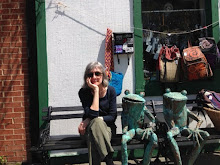Control your anger. Do not hurt other people. Control yourself. Accept and deal with what you have. Work things out instead of killing or acting violently. Do not hurt someone else when something unfair happens. Violence is not the answer. Don’t kill your brother!
These are direct quotes from our children in Tikvah Learning who were recently pondering the biblical story of Cain and Abel. We asked them: What is the Torah trying to teach us in this story? My colleague David Blocker and I are regularly blown away by the thoughtfulness of our young friends in these weekly conversations.
Now here’s a question for you: Why does God favor Abel’s offering over Cain’s? The only hint in the text is that Abel brings the “choicest” from the flock.
But is there more going on?
One commentary zooms in on a subtlety in the original Hebrew. The Torah says that Cain brings an offering “from the fruit of the earth,” and Abel brings an offering “from his flock.” Aha! – Abel brings a sheep from his own flock, but Cain brings fruit that isn’t “his.” In other words, Abel brings a gift that is dear to him, something that he has invested time and energy in. Cain brings a gift that means nothing to him, that wasn’t even his to give.
Mining the Hebrew even more, we turn up yet another clue. The Torah says “Cain brought.… And Abel also he brought….” In an imaginative midrashic move, we can read this apparently superfluous “also he” to mean that Abel literally also brought himself to God. So Abel’s offering was accepted by God not only because he brought that which was precious to him, but also because his heart and soul were involved.
Do you hear a lesson in this for your own life?
May the upcoming season of gift-giving also be a time for us to reflect on what we offer to the world, and how we offer it.
These are direct quotes from our children in Tikvah Learning who were recently pondering the biblical story of Cain and Abel. We asked them: What is the Torah trying to teach us in this story? My colleague David Blocker and I are regularly blown away by the thoughtfulness of our young friends in these weekly conversations.
Now here’s a question for you: Why does God favor Abel’s offering over Cain’s? The only hint in the text is that Abel brings the “choicest” from the flock.
But is there more going on?
One commentary zooms in on a subtlety in the original Hebrew. The Torah says that Cain brings an offering “from the fruit of the earth,” and Abel brings an offering “from his flock.” Aha! – Abel brings a sheep from his own flock, but Cain brings fruit that isn’t “his.” In other words, Abel brings a gift that is dear to him, something that he has invested time and energy in. Cain brings a gift that means nothing to him, that wasn’t even his to give.
Mining the Hebrew even more, we turn up yet another clue. The Torah says “Cain brought.… And Abel also he brought….” In an imaginative midrashic move, we can read this apparently superfluous “also he” to mean that Abel literally also brought himself to God. So Abel’s offering was accepted by God not only because he brought that which was precious to him, but also because his heart and soul were involved.
Do you hear a lesson in this for your own life?
May the upcoming season of gift-giving also be a time for us to reflect on what we offer to the world, and how we offer it.
